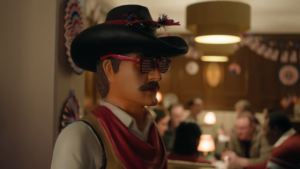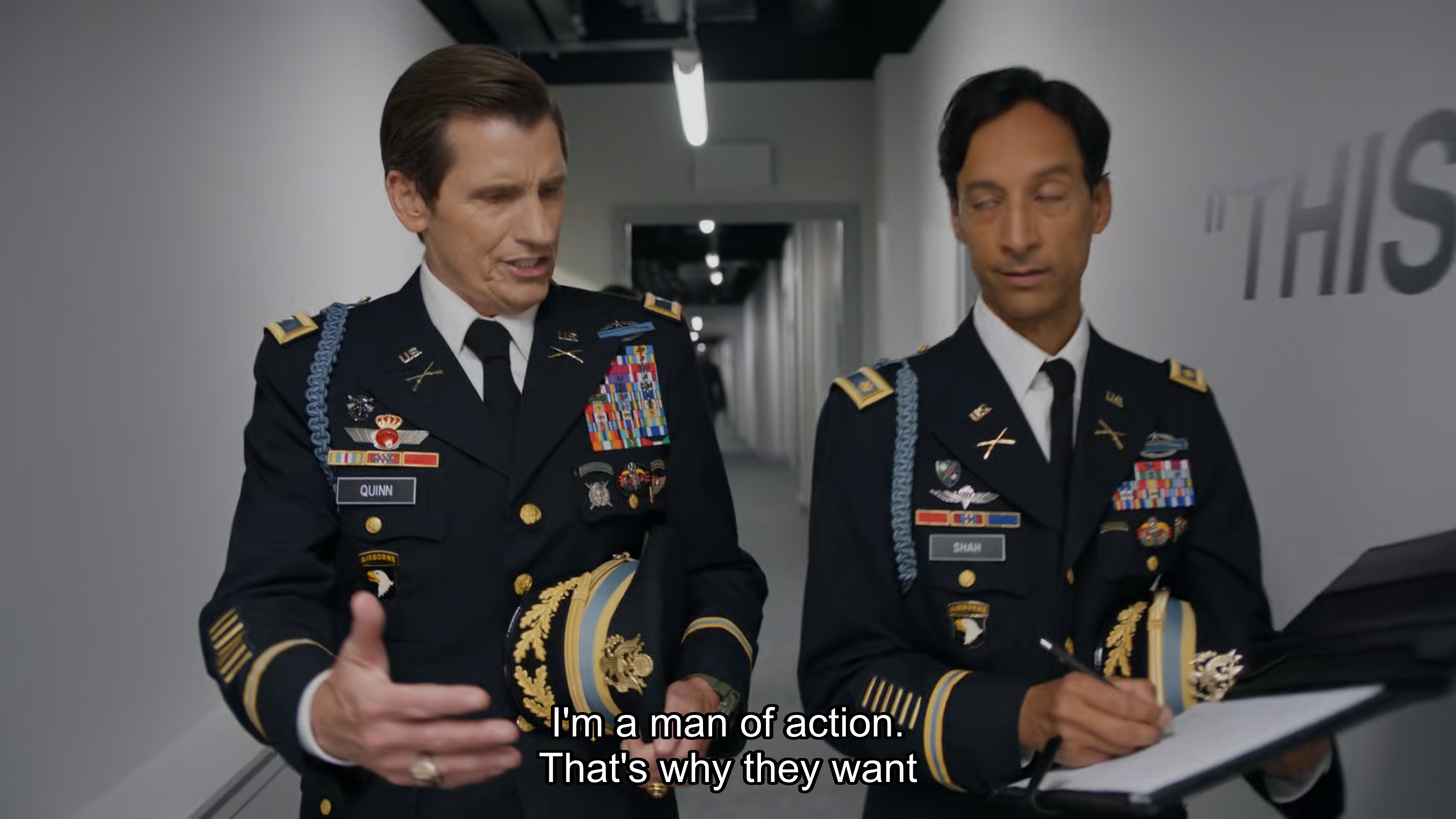For the most part, for all the reasons people usually give, I don’t care about awards. But somehow, despite my better instincts, I care about the Oscars. I don’t watch the actual awards show, but the Oscars inform what I think about, what I talk about, and, crucially, what I watch. For the past few years I’ve watched every Best Picture nominee, and I’m in 1940 with watching all of them.
Now, somewhat bafflingly, I am not a member of the Academy of Motion Pictures Arts and Sciences, and so I don’t get to vote on them. But this is the internet, so I can pretend! So let’s vote! Let’s pretend I am a member of the Academy, and lay out all my rationales for who and what I’m voting for!
For several categories I’ve watched none or only one or two of the nominees, and I wouldn’t, if this were for realsies, want to vote for things I haven’t seen. So for each category, I’ll list the nominees, with the ones I’ve seen bolded, and then both my own vote and my prediction of what or who will win.
Best Visual Effects
The Creator
Godzilla Minus One
Guardians of the Galaxy Vol. 3
Mission: Impossible – Dead Reckoning Part One
Napoleon
The Best Visual Effects category is a classic way to get some genre films in even when the bigger categories seldom acknowledge them. As such, I’m just ruling Napoleon out right away. Similarly, Mission: Impossible looks great, but the effects, of which I’m sure there are many, are simply not as flashy as in the other three films.
It’s tempting to give it to Godzilla Minus One for how impactful the Ginza sequence is, but it’s hard to overstate just how great the otherwise tepid The Creator looks — by building on top of real spaces and places, the film creates a rich and textured world unlike any other this year. I expect the Academy will agree.
My vote: The Creator
Prediction: The Creator
Best Original Song
“The Fire Inside” from American Symphony
“I’m Just Ken” from Barbie
“It Never Went Away” from Flamin’ Hot
“Wahzhazhe (A Song For My People)” from Killers of the Flower Moon
“What Was I Made For?” from Barbie
Essentially a choice between the two Barbie tracks for me, it’s an easy one — while “I’m Just Ken” is a great showstopper and showpiece for Ryan Gosling, “What Was I Made For?” is a crucial keystone to the film’s climax. If the song in that moment doesn’t work, the whole thing might fall completely apart.
My vote: “What Was I Made For?” from Barbie
Prediction: “I’m Just Ken” from Barbie
Best Original Score
American Fiction – Laura Karpman
Indiana Jones and the Dial of Destiny – John Williams
Killers of the Flower Moon – Robbie Robertson
Oppenheimer – Ludwig Göransson
Poor Things – Jerskin Fendrix
Gonna be honest here, not a big scorehead — outside of really iconic stuff, the score of a film rarely sticks with me the way dialogue or story structure do. Speaking of iconic stuff, does John Williams do anything new with his Dial of Destiny score? And for all that Oppenheimer‘s score is terrific, the single most standout moment of that film is the exact moment where it falls away. That leaves two, neither of which I can bring front of mind without listening to them, so let’s do that right now.
These scores do such different things — Göransson’s Killers of the Flower Moon score has to capture a pre-existing world, while Fendrix’s Poor Things has to figure out what a whole person without any precedent for their existence sounds like. Killers is bigger, but the Poor Things score is much more of a precision-engineered music box of madness, and the film would not be the film without it, while Killers you can imagine with a different score just fine.
The Academy hasn’t actually given John Williams a statue since 1994, and with the man only eight years away from his third digit in age, one of these days they’re gonna have to give him this thing for his whole career, so it might as well be this year.
My vote: Poor Things — Jerskin Fendrix
My prediction: Indiana Jones and the Dial of Destiny — John Williams
Best Sound
The Creator
Maestro
Mission: Impossible – Dead Reckoning Part One
Oppenheimer
The Zone of Interest
I can’t picture anything about The Creator or Mission: Impossible‘s sound. Maestro captures the Bernstein concerts well, but it’s all delivered so… adequately through Netflix’s compression that it’s hard to take seriously as a nominee here. That leaves Oppenheimer, again most notable for its moment of silence, and Zone of Interest, which is completely made by its extremely oppressive sounds of nearby terror. Tomorrow I might make the other choice, but today the decision is clear in my mind.
My vote: The Zone of Interest
My prediction: Oppenheimer
Best Makeup and Hairstyling
Golda
Maestro
Oppenheimer
Poor Things
Society of the Snow
I’m ruling out Maestro — even setting aside the question of whether it’s offensive, that big fake schnozz on Bradley Cooper has a totally different shine patina than the rest of his face when he sweats. Awful.
Oppenheimer and Poor Things would both basically be “Most Makeup and Hairstyling” votes — Oppenheimer for the sheer number of people, but Poor Things is maximalist in all the ways Oppenheimer is minimalist.
My vote: Poor Things
My prediction: Poor Things
Best Production Design
Barbie
Killers of the Flower Moon
Napoleon
Oppenheimer
Poor Things
Napoleon and Oppenheimer are both in that boat of, I get why they’re nominated, but they’re not really doing anything new in this field, there’s so many other productions that have done similar things very well, while the other three films create worlds we’ve either never seen before or never seen done this well before. Of those, Barbie and Poor Things are perhaps the most creative — but Killers of the Flower Moon‘s world blew me away and made a part of history I never knew about come totally alive.
My vote: Killers of the Flower Moon
My prediction: Barbie
Best Costume Design
Barbie
Killers of the Flower Moon
Napoleon
Oppenheimer
Poor Things
I look at Best Production Design, I look at Best Costume Design, I look at Best Production Design, I look at Best Costume Design. They’re very similar pictures. With Poor Things very much the “Most Costume Design” candidate, I’d like to emphasise again how much the costuming on Killers of the Flower Moon brings the world of it alive. The meticulous research that went into it really shows on screen, and that’s worth rewarding.
My vote: Killers of the Flower Moon
My prediction: Poor Things
Best Film Editing
Anatomy of a Fall
The Holdovers
Killers of the Flower Moon
Oppenheimer
Poor Things
Simple. The Holdovers for bringing back the slow fade.
My vote: The Holdovers
My prediction: The Holdovers
Best Cinematography
El Conde – Edward Lachman
Killers of the Flower Moon – Rodrigo Prieto
Maestro – Matthew Libatique
Oppenheimer – Hoyte van Hoytema
Poor Things – Robbie Ryan
Gonna be honest here, never been entirely sure exactly what the cinematographer does, so I’m just gonna go by vibes here — Maestro‘s recreation of old styles of screen visuals is meticulous, Poor Things looks very exciting, but I’m gonna have to give this one to Oppenheimer for the bomb sequence.
My vote: Oppenheimer
My prediction: Oppenheimer
These next few are… a little less thorough just because I haven’t, uhhhhhh, seen any but two of the films from the first five of the next eight categories. International, short, and documentary categories are big blindspots for me, something I should really work on. There’s three more awards I actually have opinions about at the end, though.
Best Animated Short Film
Letter to a Pig
Ninety-Five Senses
Our Uniform
Pachyderme
War Is Over!
Only heard anything at all about War Is Over!. Do people still love John Lennon?
My prediction: War Is Over!
Best Live Action Short Film
The After
Invincible
Knight of Fortune
Red, White and Blue
The Wonderful Story of Henry Sugar
A beloved feature director showing up in the shorts is, perhaps, unfair. But this seems like an easy call.
My vote: The Wonderful Story of Henry Sugar
My prediction: The Wonderful Story of Henry Sugar
Best Documentary Short Film
The ABCs of Book Banning
The Barber of Little Rock
Island in Between
The Last Repair Shop
Nǎi Nai & Wài Pó
Only heard anything at all about The ABCs of Book Banning and The Last Repair Shop, and the former seems like the one people will vote for just based on the subject matter.
My prediction: The ABCs of Book Banning
Best Documentary Feature Film
Bobi Wine: The People’s President
The Eternal Memory
Four Daughters
To Kill a Tiger
20 Days in Mariupol
Genuinely not heard anything about any of these.
Best International Feature Film
Io Capitano (Italy)
Perfect Days (Japan)
Society of the Snow (Spain)
The Teachers’ Lounge (Germany)
The Zone of Interest (United Kingdom)
I’ve only seen The Zone of Interest, though I’ve also heard good things about The Teachers’ Lounge and Society of the Snow.
My vote: The Zone of Interest
My prediction: The Zone of Interest
Best Animated Feature
The Boy and the Heron
Elemental
Nimona
Robot Dreams
Spider-Man: Across the Spider-Verse
Finally, another real category. Spider-Verse was half a film, and Elemental was a nothingburger. But I can not begin to tell you how much I adored Nimona. My sweet, precious, biting child Nimona. Hard to imagine it’ll win, but my vote is my vote.
I think if Miyazaki had actually committed to retiring, I’d feel more confident predicting Boy and the Heron, but I don’t think the Academy will care about it more than it will care about Spider-V2rse.
My vote: Nimona
My prediction: Spider-Man: Across the Spider-Verse
Best Adapted Screenplay
American Fiction – Cord Jefferson; based on the novel by Percival Everett
Barbie – Greta Gerwig and Noah Baumbach; based on characters created by Ruth Handler
Oppenheimer – Christopher Nolan; based on the biography by Kai Bird and Martin J. Sherwin
Poor Things – Tony McNamara; based on the novel by Alisdair Gray
The Zone of Interest – Jonathan Glazer; based on the novel by Martin Amis
How do you judge adaptation? Barbie squeezes so much out of its source material that you start to wonder what they make those dolls out of, Oppenheimer mixes the strict fact of its source material with openly admitted fiction, for all that you can’t do many of the literary devices of the novel, Poor Things seems like it’s as fairly straight an adaptation of the source material’s raw story as you could make with Lanthimos’ sensibilities, while The Zone of Interest more just kinda does its own thing with it. I don’t know.
My vote: Oppenheimer
My prediction: Barbie
Best Original Screenplay
Anatomy of a Fall – Justine Triet and Arthur Harari
The Holdovers – David Hemingson
Maestro – Bradley Cooper and Josh Singer
May December – Samy Burch
Past Lives – Celine Song
I love three of the four of these I’ve seen, but what do I actually love about them? So much of it is in the performances, so much of it is in how it all comes together. But I always bring up the ambiguity of Anatomy of a Fall before I bring up Sandra Hüller, so let’s give it to it for its immaculate structure.
People seem to think May December was largely snubbed, so I can see that feeling coming together into votes here.
My vote: Anatomy of a Fall
My prediction: May December
To be continued! This is part one of two. Part two, out tomorrow, will cover the big six.










